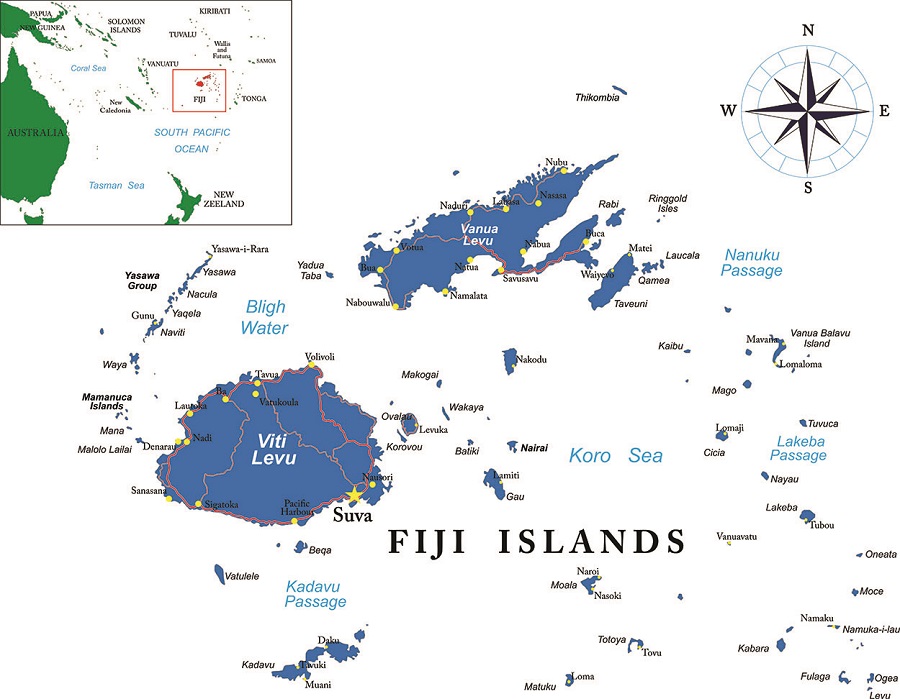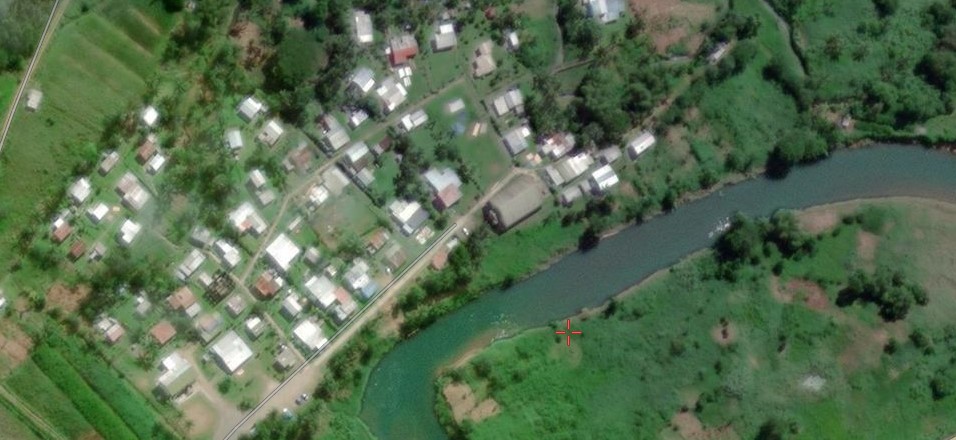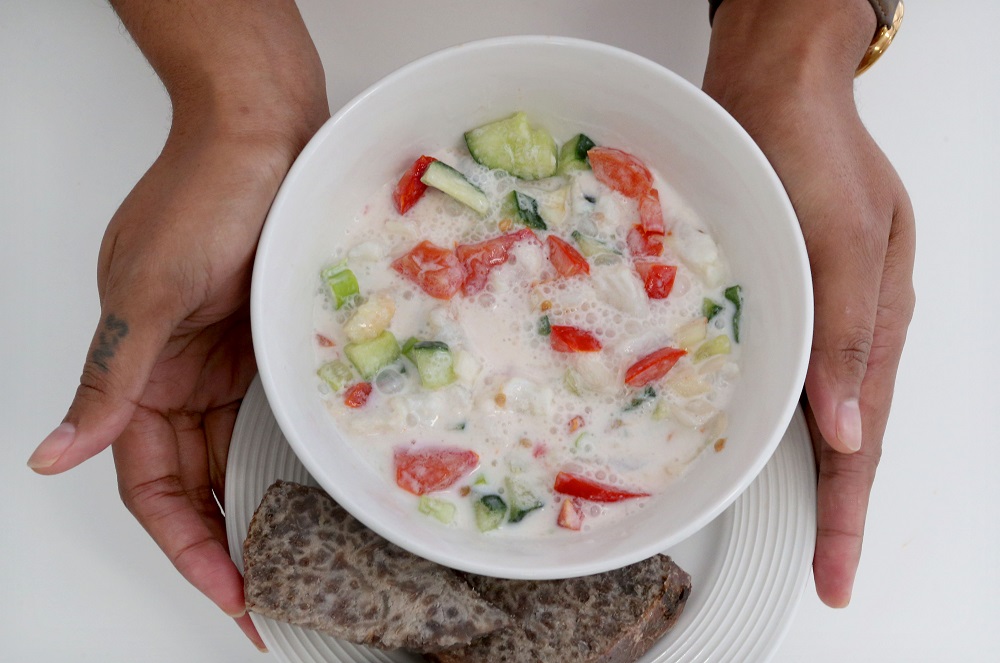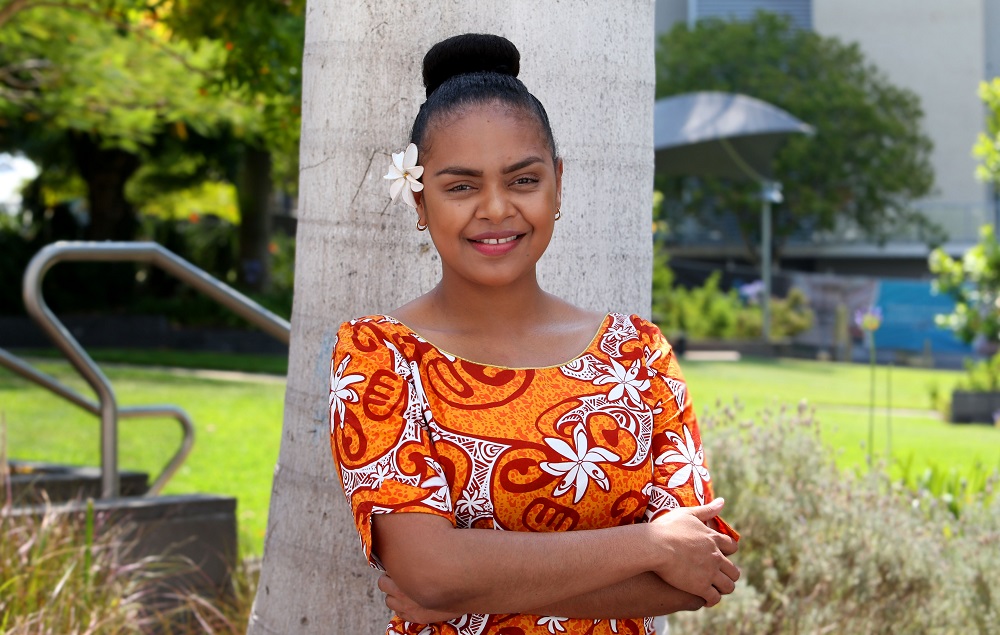When Alisi Gould thinks of her home in Fiji, she is reminded of the distinctive and emotional contentment that comes only from being with family.
“There is a great family vibe,” Alisi said.
“It’s not just nuclear family but having the extended family all around.
“Days would be spent sitting around with the community of my relatives, telling jokes and drinking lots of tea.”
Alisi grew up in Sawani Village in the Province of Naitasiri, Fiji, 30 minutes inland from Fiji’s capital Suva.
Sawani is a small village of about 100 families on the Waimanu River.
The river is central to village life and Alisi’s childhood memories meander around the adventures had on the banks of the Waimanu.
“I spent my youth playing with friends from the village, building castles beside the river,” she said.
“We would play with sticks and look for guava, wild passion fruits, whatever we could find along the river.”
A child being raised by a village is not just a saying in Fiji, but a way of life.
“Everyone is there for everyone and everyone is family,” Alisi said.
“My family always had open arms when anyone needed help and when I have children I hope to instil this value of having each other’s back.”
Alisi also remembers fondly spending time in her grandmother’s kitchen.
“Women tend to bond over cooking food with their children,” she said.
Whenever her grandmother, Milinia, was preparing to cook her signature dish, Kokoda – a traditional fish dish – she would call out to the children in the house at the time.
“If your name was mentioned it was too late to run away,” Alisi said.
“Whoever was in the house would be her helpers.
“She would sit in the kitchen and direct her helpers telling us, ‘this is how you cut this, this is how you do that’.
“She was very proud of her cooking and you can feel the love, the authentic passion she had for cooking.
“You can taste her love in there.”
Whenever Alisi is feeling home sick or she misses her grandmother, she heads to the shop to buy the ingredients to her grandmother’s Kokoda.
“It’s good for any season but she would make it mostly for functions,” Alisi said.

Fiji Facts
Fiji as it is known, is officially the Republic of Fiji.
An archipelago of more than 330 islands, 110 or which are inhabited, Fiji is an island country in Melanesia in the South Pacific.
The total population is 883,483 people and three quarters of Fijians live on the major island, Viti Levu.
Suva is the capital and is situated on Viti Levu.
One of the most developed countries of the Pacific island economies, Fiji has large forest, mineral and fish resources.
Sugar exports and growth in tourism are the major activities for revenue.
The concept of family and community is of great importance to Fijian culture.
According to the 2007 census, 64.4% of the population at the time was Christian, while 27.9% was Hindu, 6.3% Muslim and 0.8% non-religious.
Fiji’s national sport is Rugby Sevens.
Fiji Day is celebrated on 10 October, which is the anniversary of Fiji’s independence from British colonial rule in 1970.

Alisi has now been living in Ipswich for six years.
She never dreamed of leaving Fiji but after Alisi graduated from the University of the South Pacific, she came to Australia to visit her aunt.
“I saw there was a lot of opportunities here for a job and a good life,” she said.
“I am one of seven children and I wanted to help my family back home.”
Living and working in Ipswich placed Alisi well outside her comfort zone at first.
“It was hard at first to get used to all the Aussie slang,” she said.
“One day I asked my co-worker ‘what are you having for dinner tonight?’ She said ‘chook’.
“I asked what in the world is chook?
“I googled it.
“I turned around and asked her – why can’t you just say chicken and everyone laughed.”
At first Alisi would laugh along with all the Aussie slang and jokes that she did not understand but she always remember to google them afterwards.
Alisi has now settled into her Australian home in Ipswich saying she loves every bit of it.
It is said that Fijians are among the happiest people in the world and Alisi is no different.
She is currently a project officer for a complaint management unit.
Her supportive upbringing and caring nature aid her well in this work.
“People can often get upset but I love people and I tell them – I am here to help you,” she said.

Recipe – Kokoda
“Kokoda is a traditional Fijian recipe made with raw fish cured in lime and lemon juice,” Alisi said.
“I mostly serve mine with Taro which I make by chopping up 500g of Taro, place it into a pot, over with water and cook for 30 minutes.
“After that strain the water out, roll it out to the thickness of bread, cut and let cool.”
Ingredients
500g fresh snapper fillet, cubed
4 limes, juiced
2 lemons, juiced (1 cup of citrus juice, or enough to submerge)
1 cup coconut milk
2 medium-sized shallots, finely diced
1/2 medium red onion, finely diced
1 medium sized green bell peppers, finely diced
1 persian cucumber, finely diced
3 long red chili, finely diced
2 tablespoons parsley, finely diced
2 roma tomatoes, finely diced
Method
Place your cubed snapper in a large mixing bowl, then pour the mixed citrus juice over top until the fish is submerged.
Cover the bowl with plastic wrap, then place into the fridge for at least two hours.
After two hours or more, the fish filet should be opaque and ready to go.
Drain the excess liquid
Pour the coconut milk over the bowl.
Add your chopped shallots, red onion, green bell pepper, cucumber, chili, tomatoes and parsley and mix.



